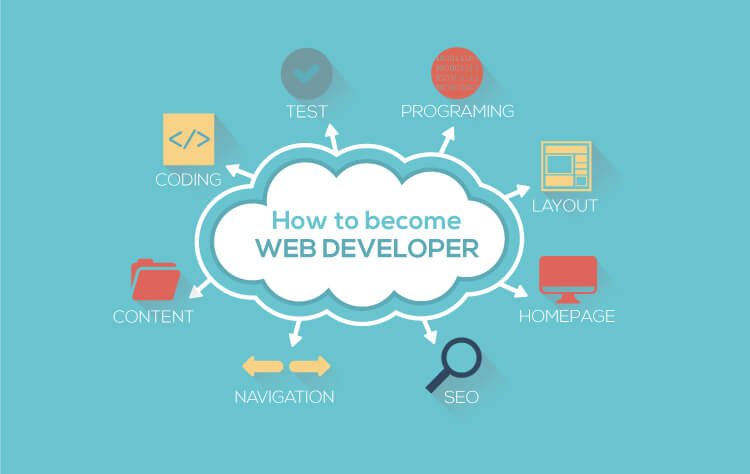How to become web developer Complete Guide ?
The demand for web developers has skyrocketed in recent years, making it one of the most lucrative and sought-after careers in the tech industry. Whether you want to build websites as a freelancer or work for a company, becoming a web developer is an excellent career choice. In this guide, we’ll walk you through the essential steps to becoming a web developer, even if you have no prior experience.
1. Understand the Role of a Web Developer
A web developer is responsible for designing, building, and maintaining websites and web applications. They work with different technologies, frameworks, and tools to create functional and visually appealing digital experiences. There are three main types of web developers:
- Frontend Developer: Focuses on the visual and interactive aspects of a website using HTML, CSS, and JavaScript.
- Backend Developer: Works on the server-side, managing databases and ensuring smooth functionality using languages like Python, PHP, and Node.js.
- Full-Stack Developer: A combination of both frontend and backend development, handling all aspects of web development.
2. Learn the Fundamentals of Web Development
To become a web developer, you need to start with the basics:
- HTML (HyperText Markup Language): The structure of web pages.
- CSS (Cascading Style Sheets): Styles and designs web pages.
- JavaScript: Adds interactivity and dynamic behavior to websites.
These three languages are essential for frontend development and form the foundation of web development.
3. Explore Frontend Development
Once you have mastered HTML, CSS, and JavaScript, you should dive deeper into frontend development:
- CSS Frameworks & Preprocessors: Learn frameworks like Bootstrap and preprocessors like SASS for efficient styling.
- JavaScript Libraries & Frameworks: React.js, Vue.js, or Angular can help streamline frontend development.
- Responsive Design: Learn how to create websites that work seamlessly on all devices using CSS Flexbox, Grid, and media queries.
4. Learn Backend Development
Backend development is crucial for handling data, authentication, and business logic. Some important backend technologies include:
- Programming Languages: Python (Django, Flask), JavaScript (Node.js), PHP, Ruby on Rails.
- Databases: MySQL, PostgreSQL, MongoDB.
- APIs (Application Programming Interfaces): RESTful and GraphQL APIs allow frontend and backend communication.
- Server Management: Understanding servers, hosting, and cloud computing (AWS, Firebase, Heroku) is beneficial.
5. Understand Version Control
Version control helps developers track and manage code changes efficiently. Learn Git and GitHub to collaborate with other developers and maintain project history.
6. Work on Real-World Projects
Practicing what you learn is the best way to improve your web development skills. Start by building:
- A personal portfolio website
- A blog platform
- An e-commerce website
- A social media app
Contribute to open-source projects on GitHub to gain real-world experience.

How to become web developer ?
7. Learn About Web Development Tools
There are various tools and extensions that make web development more efficient:
- Code Editors: VS Code, Sublime Text, Atom.
- Browser Developer Tools: Chrome DevTools for debugging and optimizing web pages.
- Task Runners & Module Bundlers: Webpack, Gulp, and Parcel help automate tasks.
8. Understand Deployment and Hosting
After building your projects, you need to deploy them online. Some common hosting platforms include:
- Netlify & Vercel (for frontend projects)
- Heroku & DigitalOcean (for backend applications)
- GitHub Pages (for static websites)
9. Keep Learning and Stay Updated
Web development is a constantly evolving field, and staying up-to-date with the latest trends is crucial. Follow web development blogs, join communities, and take online courses to enhance your skills continuously.
10. Start Applying for Jobs or Freelancing
Once you have a solid understanding of web development, you can start applying for jobs or freelancing. Build a strong resume and portfolio showcasing your projects. Use platforms like LinkedIn, Upwork, and Fiverr to find opportunities.
Conclusion
Becoming a web developer requires dedication, practice, and continuous learning. By following this guide, you’ll be well on your way to mastering web development and building a successful career. Start learning today, practice regularly, and soon you’ll be creating amazing websites and applications!
Contact Us : +91 7542857907
Visit: Read More


